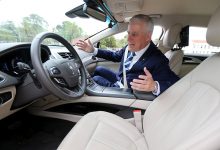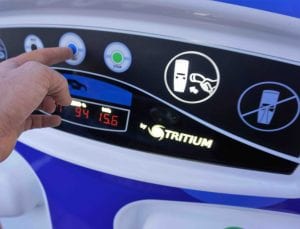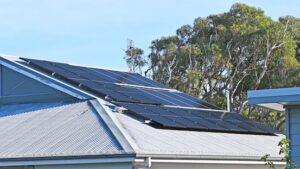Generally, when a government minister fronts up to an industry event, it is an opportunity for the minister to show off that they truly understand the issues and challenges facing the industry.
Such speeches are often a chance for a minister to showcase a vision for how they will use their position to make important policy reforms to support the sector, helping to stimulate investment, innovation and job creation.
Nationals leader and federal transport minister Michael McCormack had such an opportunity when he helped to open the International Driverless Vehicle Summit in Sydney earlier this week.
But instead of presenting a vision for a driverless future, one that is likely to help drive a dramatic shift to electric vehicles, McCormack instead delivered a meandering speech that navigated between leadership spills, sports stadiums, the Country Woman’s Association and the perks of being the acting Prime Minister.
In fact, the National’s leader was almost half way through his speech before he even started talking about transport.
It was a speech that demonstrated little comprehension of the future of driverless vehicles, and a speech from a federal transport minister that would surely raise more concern than hope for a rapidly emerging segment of our transport system. And it didn’t mention electric vehicles once, perhaps not surprising given the Coalition’s aversion and campaigns against them.
McCormack thought the best opportunity for autonomous vehicles was their role in improving transport safety and the ability of ‘grey nomads to see our wide brown land’, but the transport minister said nothing of the vast potential of driverless vehicles to reshape our transport system.
McCormack preferred to stick to National party staples, emphasising the party’s focus on freight transport.
“Automated vehicles and connected infrastructure around them can obviously directly contribute to making our roads safer and that’s what it’s all about,” McCormack said.
“Whether it’s the safe system approach, placing emphasis on both vehicle and infrastructure design as to present- prevent death and serious injury, connected and automated vehicles having the potential to contribute to a safe system through providing and analysing data.”
While safety improvements are a significant benefit of driverless vehicle technologies, apparently McCormack’s hasn’t quite grasped the enormous potential of autonomous vehicles, technologies that will fundamentally reshape our urban and freight transport systems.
Major automotive companies like Daimler-Bosch and Volkswagen are already aiming to introduce fully-automated passenger vehicles into the market by 2025. The NRMA has made a series of strong recommendations to governments that planning needs to begin now, to ensure transport infrastructure and regulations are prepared for a driverless future.
Automated vehicles are not some far off technology, with the technology already starting to penetrate the passenger vehicle market. Many commercially available vehicles, including the all-electric Tesla Model 3 are already equipped with automated driving features.
Significant amounts of money are being poured into the development of driverless vehicles by ride-share companies like Uber and Lyft, as these companies see the future of transport not in privately owned vehicles, but in driverless on-demand vehicles.
Australian tech billionaire Mike Cannon-Brookes has invested in autonomous ride-share company Zoox, such is the cross-over interest between future transport and information technology companies.
But McCormack failed to touch on any of this in his speech, seeming to see driverless vehicles as primarily being an opportunity for ‘grey nomads’ to continue road-tripping across the country.
“So you know, I always used to think that 70 was old but as the older I get, the younger that seems. But we want to make sure that for those people, whether they’re grey nomads, whether they’re seeing our wide brown land and it is very brown at the moment unfortunately due to the drought,” McCormack told the summit.
“But those people who are getting out and about, that they’ve got the best available technology, they’ve got the best available infrastructure and they’ve got the best available opportunities to live the best lives in their twilight years. Now these benefits as far as driverless technology and the like, we all know it’s a step up in improving awareness of transport issues not just in capital cities but in regional centres.”
While safe and accessible transport for Australia’s elderly is certainly an important consideration of a future transport system, it is but a small part of the future that driverless, all-electric vehicles, can provide and it is concerning that a federal energy minister has apparently failed to recognise this.
On hand to assist McCormack to open the conference was NSW transport minister Andrew Constance, who fortunately was able to speak on some positive developments he has been able to achieve in his portfolio.
Significantly, the NSW transport minister was able to point to a major policy announcement from the NSW government that will seek to shift Sydney’s 8,000-strong bus fleet away from traditional diesel-fuelled buses and onto all-electric buses.
The NSW Government has also been operating a successful trial of a full automated Smart Shuttle service that services the Sydney Olympic Park precinct. The shuttle service can communicate with traffic infrastructure, including traffic lights to assess live traffic conditions, as it transports visitors to different venues around the sports precinct.
“We now have two smart shuttles ‘talking’ to the conditions and infrastructure around them. Customers can get on board and test ride these buses over the next six months to help us gain insights into how autonomous vehicles can improve services and how this technology will shape our future transport,” Constance said.
The federal government has committed to developing a National electric vehicle strategy, committing $400,000 to fund the work in preparing it, but there has been no sign of any funding commitment towards actual implementation of the strategy.









